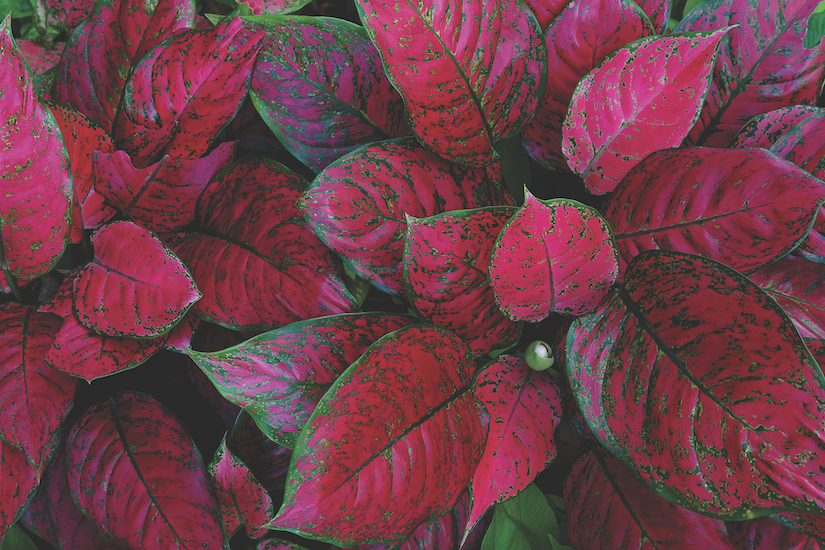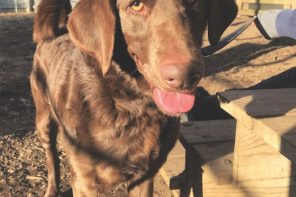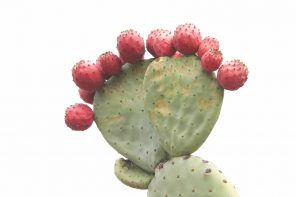An Athena woman often has depreciated her own mother. She needs to discover her mother’s strengths, often before she can value any similarities to her mother in herself. — Jean Shinoda Bolen, M.D., “Goddesses in Everywoman: A New Psychology of Women.”
I am a plant mother. Every morning, when I go downstairs and then outside to pick up the newspaper, I say, “Good morning to the House of the Spirits,” borrowing from Isabel Allende to honor my beloved Aunt Mary, and all my other relations who have gone before. Then I turn to my indoor plants and my garden and say, “Grow for Mommy. Mommy loves you. You’re all beautiful.” And they whisper back, “We will, Mommy. We love you and think you’re beautiful, too.”
And thus begins another day, which is not to say that it will necessarily be a good day or that I am a good plant parent. There have been overwatered Christmas cactuses — cacti to you Latin buffs; a pink-striped potted palm from my sister Gina that I named Colin after Colin Kaepernick that is down to its last spindly leaves; a small cactus that I accidentally hit with a window I was cleaning — yes, only I could ruin a cactus; petunias and New Guinea impatiens that were resurrected by the long-suffering handyman Selvin after I left them in the care of a negligent neighbor; and too many “Mr. Poinsettias” than I care to mention.
(The only plant that has not died on me, yet, is the easygoing, virtually indestructible red aglaonema, or Chinese evergreen, a pink-green joy.)
Gina — a real Artemis, goddess of wild things — has tried to help with assorted books, implements and joint visits to Terrain in Westport, to little avail, although I am always poking and prodding my plants with the water thermometer that she and a Terrain saleswoman said would be essential to me. At least the overwatering has stopped.
I have credited my misadventures in plant parenting to what I’ve always seen as zero maternal instinct — unlike our sister Jana, a real Demeter, earth mother. When Jana was a child and received a new doll, she would tenderly put it in her baby stroller. I on the other hand — a real Athena, warrior goddess of wisdom — would line up my dolls in Aunt Mary’s attic, assign each a school profile and then grade them as I instructed them. All too many received Fs, “because you’re stupid,” I would point out, “stupid and unteachable.” They would stare back at me blankly, apparently unfazed by the gravity of their predicament. No wonder they were failing.
The real reason for my lack of maternal instinct, however, can be traced to my tangled relationship with my own mother. For reasons that are too complex to delve into here, she did not raise me but gave me over to the care of her immediately older sister, Mary. Over the years, my relationship with my parents would be alternately affectionate, distant and explosive, and I would come to see myself not as a bridge between my mother and my aunt, who had their own fraught history, but as a wedge.
Perhaps that’s why when anyone brings up moms and kids — as in stories of balancing homework and working at home in the time of COVID-19 — I get a sinking feeling. “This would be my idea of the Ninth Circle of Hell,” I told a neighbor, also childless, who chuckled in response. No doubt she, who has known me since I was a young woman, has long intuited that while I love keeping house as a curator of inanimate objects — a pursuit that never interrupts my thinking, reading and writing — I’ve never been one for taking care of living things with their constant neediness.
All that changed in 2009 when I lost my job as senior cultural writer for Gannett Inc. and Aunt Mary’s dementia rapidly accelerated due to disastrous artificial-hip replacement surgery. She came home from rehab March 11, 2010. A tree fell on our house in a nor’easter March 13. And on March 15, I started a new job with Westfair Communications, WAG’s parent company. In six days, my life changed forever, not necessarily for the better.
I’d like to tell you that I became like all those Bette Davis and Vivien Leigh heroines whose self-centeredness is transformed by love. But life isn’t “Now, Voyaget,” “Gone With the Wind” or any of those other women’s pictures about fearlessness that I nonetheless took strength from. In my denial, despair and defiance, I came to realize my aunt and I had come full circle: She had delivered me into a brilliant life, and I would shepherd her through her earthly journey’s end. And I would do so by stewarding our home and garden. I would become their caretaker as well and, in restoring both, they would truly become mine and I would restore myself.
Over time, I began to see that self in a new light, as a nurturer. “Well, you are the mother of your books,” an usher would later flatter me at church one Mother’s Day, offering me the beribboned carnation that is given only to mothers after I had demurred from accepting it. Yes, I am, I thought. Like the goddess Athena, who sprang full-blown from the head of her father, Zeus, after he had devoured her mother, Metis — he was afraid Metis would have a son greater than he — I am the mother of my thoughts and words, my home and my garden.
And as that mother, I always buy myself a Mother’s Day gift. “What? You don’t deserve a present since you’re not a mother,” bellows my Uncle Johnny — who’s not a mother either. “Oh, yes I do. And anyway, what’s your point?” I bellow back. Yes, what is the point? “Tell him,” a feminist friend once told me, “that you are the mother of yourself, as we women all are.”
But I could not do that before I said goodbye to my other mothers. I can tell you this: It is easier to lose a parent you love than one you are in conflict with. “Death ends a life,” Robert Anderson observed in his play “I Never Sang for My Father.” “But it does not end a relationship, which struggles on in the survivor’s mind toward some resolution, which it may never find.” My aunt died in an ice storm on Groundhog Day, 2011 and while I mourn her loss, I celebrate her and our relationship. Would you be surprised to learn that my mother died nine months later almost to the day, on All Saints’ Day?
I think now about the summer before my mother died, ostensibly from breast cancer but really from heart disease and a stroke that had left her mainly bedridden in a nursing home for 16 years. At the hospital where she was recovering from the cancer surgery, I told her I could look after her for a few hours while my sister Gina, her primary caregiver and favorite, stepped out.
“She thinks I don’t know how to care for someone, but I cared for Aunt Mary,” I told my mother as I applied a cold compress to her face.
“That’s because you loved her,” my mother said. “And do you love me?” she added hopefully.
I looked at her then and said the only thing I could: “I love you as much as I ever loved her.”
My mother and I never had another significant conversation. And we didn’t have to.
So they became part of my House of the Spirits, which I have continued to cultivate along with my garden. But then “we must cultivate our garden,” Voltaire wrote in “Candide.”
It isn’t always easy, as the long-suffering Luis, the contractor who saved my house and revived the garden, will tell you. There have been the occasions when he and his men have given haircuts to shrubs that I felt didn’t need them (meltdown). And the time they power-washed the house, leaving a few bleach stains on the lawn (another meltdown). Plants have come and plants have been given a formal compost burial.
“It’s really trial and error,” a botanist told me at a New York Botanical Garden luncheon as I bemoaned my poor mothering. Imagine that — trial and error. Perhaps actual parenting is like that, too.
And if such is the case, then perhaps it is possible to forgive others and forgive ourselves. Or at least I think that as I go about cultivating my garden — mother of my plants and stories, mother of myself.





